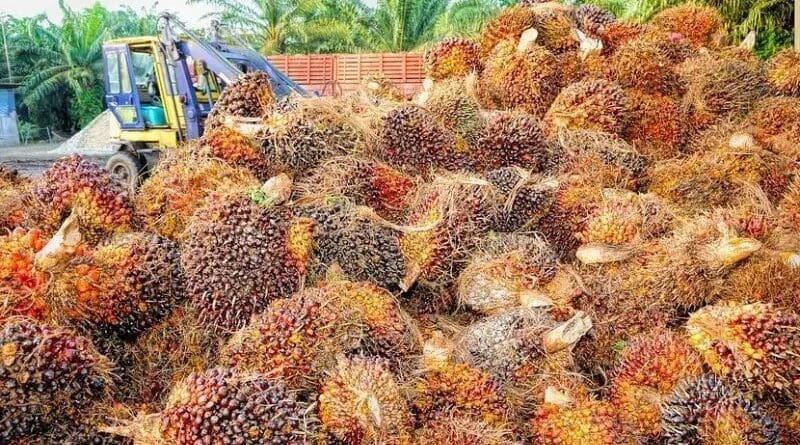The High Cost Of Convenience: Balancing Palm Oil’s Benefits With Environmental Protection – OpEd
The palm tree a highly useful plant is of particular importance for its cultivation and production of palm oil. Palm oil is an essential compound in several goods including processed foods cosmetics and specific biofuels. The use of palm oil is for frying. The palm profitability of plantations is undeniable. Although this will highlight the many ways palm oil production has boosted the economic viability various of areas it is also important to consider the effects on our planet when planting these types of crops. How we acquire the result without destroying habitats where palm trees naturally grow?
The palm industry has greatly impacted both Malaysia and Indonesia. Millions of jobs have been created as a result of the palm industry including plantation work and processing oils. Income levels more increased and land has been given to small and large farmers. Poverty levels especially in Indonesia decreased. Indonesia has earned billions of foreign earnings through palm oil allowing the country to in invest infrastructure and poverty reduction measures. It is predicted that palm oil will boom and enable Indonesia to lift millions of people out of poverty. Global food demands and food security in underdeveloped countries require a highly inexpensive and fat-productive source which is palm oil.
Palm oil production has led to several economic benefits for Southeast Asia but overall the country’s cost to the environment is simply too high. The palm industry oil’s practice of clear-cutting vast rainforest expanses to make room for palm plantations is a major problem. This destroys crucial habitats for many endangered animals and is responsible for the enormous release of amounts of greenhouse gases which accelerate climate change. Deforestation is a major to contributor climate change as it releases more carbon and greenhouse emits into gases in the atmosphere.
Additionally, each time palm a plantation replaces peatlands large amounts of carbon are into released the air. The unsustainable production of palm oil has led to unsustainable lifestyles and is a major cause of biodiversity loss in Southeast Asia as explained in a Nature article on sustainability in 2020. This is why there is a global movement towards promoting international sustainable palm oil exports which is receiving significant attention. Many initiatives are being implemented to increase the sustainability of oil palm production, and one of these is the Roundtable on Sustainable Palm Oil (RSPO). Established in 2004 the RSPO has developed a set of environmental and social criteria aimed at preventing deforestation protecting biodiversity and safeguarding the rights of workers in local communities involved in palm oil production). Companies that are committed to sustainability obtain their oil palm from RSPO-certified or equivalent producers.
The solution to making oil palm sustainable is a multidimensional approach. Ongoing research is crucial in cultivating high varieties yielding increased productivity and obtaining more oil per hectare. This is essential to prevent the need for additional land. Palm oil companies are restricted to growing on previously deforested land, as deforestation for palm oil cultivation is not allowed. Another aspect of achieving sustainability is to improve the returns from palm oil which in turn can lead to an increase in the price of crude oil palm. Governments must fulfill their role by strengthening and enforcing environmental laws. Additionally, consumers have a significant role to play. Campaigns are in place to encourage consumers to choose products containing certified sustainable palm oil. Finally, producers and environmental groups must come together and collaborate to ensure transparency and true sustainability in the palm oil industry.
To conclude, palm oil is a complex issue. It brings significant advantages to livelihoods social aspects and the economy, particularly in developing countries. However, the disadvantages of oil palm cannot be ignored. Therefore, the international community must strive towards a sustainable oil palm industry that can achieve profitable growth while ensuring environmental safety. The industry can accomplish by this showcasing responsible practices, transparent commitment to goals, and active participation in collaborative initiatives within the supply partnerships chain.
The opinions expressed in this article are the author’s own.
References:
- Roundtable on Sustainable Palm Oil. (n.d.). Why sustainable palm oil? Retrieved May 10, 2024, from https://rspo.org/why-sustainable-palm-oil/environmental-impact/
- Roundtable on Sustainable Palm Oil. (n.d.). Our impact: Outcomes and impacts. Retrieved May 10, 2024, from https://rspo.org/our-impact/outcomes-and-impacts/
- Jong, H. N. (2020, August 5). ‘Meaningless certification’: Study makes the case against ‘sustainable’ palm oil. Mongabay. Retrieved May 10, 2024, from https://news.mongabay.com/2020/08/palm-oil-certification-sustainable-rspo-deforestation-habitat-study/
- The Borgen Project. (n.d.). Sustainable Palm Oil. Retrieved May 10, 2024, from https://borgenproject.org/sustainable-palm-oil/
- Earth.org. (n.d.). The challenges of sustainable palm oil production and consumption. Retrieved May 10, 2024, from https://earth.org/the-challenges-of-sustainable-palm-oil-production-and-consumption/

